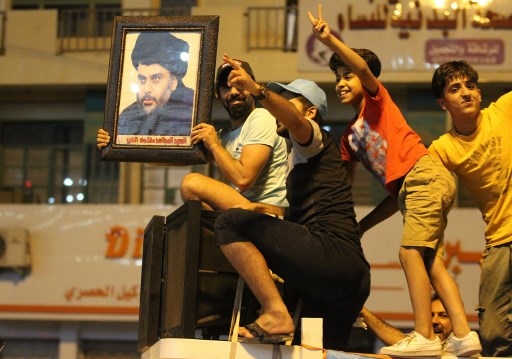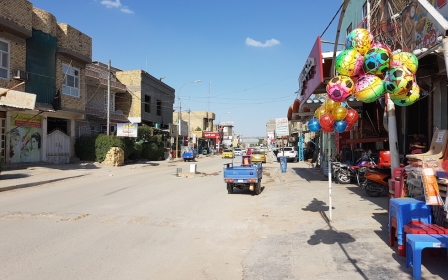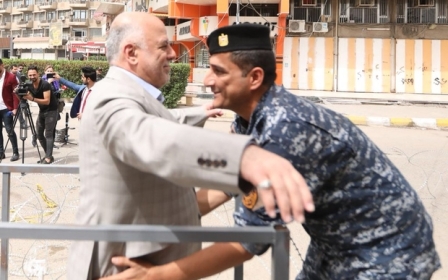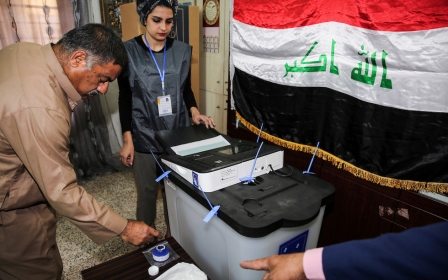Iraq elections: Sadr and communist allies leading at halfway stage

Shia cleric Moqtada al-Sadr and his communist allies were leading in the Iraqi parliamentary elections with over half the votes counted, the country’s electoral commission said, with Prime Minister Haider al-Abadi’s coalition sitting in third.
The preliminary results are a surprise, with Abadi’s bloc, which had positioned itself as a potential partner of both the United States and Iran, predicted to be the frontrunner.
Hadi al-Amiri’s Fatah Alliance, a Tehran-backed coalition mostly made up of Hashd al-Shaabi militia groups that played a key role in the war against the Islamic State group (IS), was running second.
By Monday morning more than 95 percent of votes cast in 10 of the country’s 18 provinces had been counted. Official results are expected later on Monday.
A Sadr victory does not necessarily mean his alliance of disaffected Shia, leftists and secular groups can form a government, which will emerge after negotiations following the final results.
If the results are confirmed then it would throw open the race for Iraq's new prime minister.
Sadr cannot become prime minister, as he did not run personally in the elections. He may have a key role in deciding who does, however.
The elections have been dominated by the issues of corruption, unemployment and security, and are the first to be held since the defeat of IS in 2017.
However candidates’ messages appear not to have resonated for much of the country, as many Iraqis stayed away from the polling booths on Saturday.
The electoral commission put turnout at 44.52 percent with 92 percent of votes counted – significantly lower than previous elections.
The body put Sadr and Amiri as winning in four out of the 10 provinces where votes had been counted.
In Baghdad, which has the highest number of seats, Sadr and the Iraqi Communist Party’s Sairoun Alliance won significantly more votes than its rivals.
A document seen by Reuters purported to show results from all 18 provinces, and predicted the Sairoun Alliance to win the popular vote with more than 1.3m votes, gaining 54 of the 329 seats in parliament.
Amiri’s Fatah Alliance was seen to have won 1.2m votes and 47 seats, while Abadi’s Nasr Coalition is expected to walk away with 1 million votes and 42 seats.
Iraq has been plagued by chronic corruption, unemployment and sectarianism, with the influential Shia cleric Sadr and his leftist and secular allies forming an unlikely alliance in opposition to the issues.
Sadr has also positioned himself as removed from both US and Iranian influence, as both countries vie for strong positions in Iraq following the victory over IS.
The Iraqi electoral system is complex, meaning that the final makeup of the parliament is still far from decided.
Senior political figures had previously told AFP that preliminary results put Abadi on top, expected to secure 60 seats.
New MEE newsletter: Jerusalem Dispatch
Sign up to get the latest insights and analysis on Israel-Palestine, alongside Turkey Unpacked and other MEE newsletters
Middle East Eye delivers independent and unrivalled coverage and analysis of the Middle East, North Africa and beyond. To learn more about republishing this content and the associated fees, please fill out this form. More about MEE can be found here.




